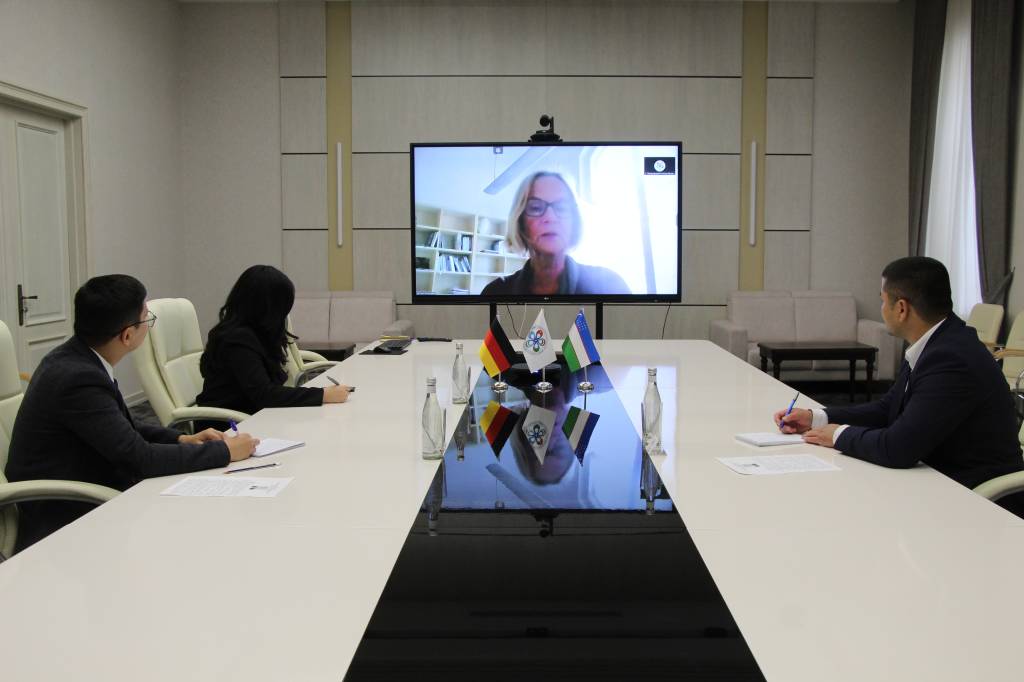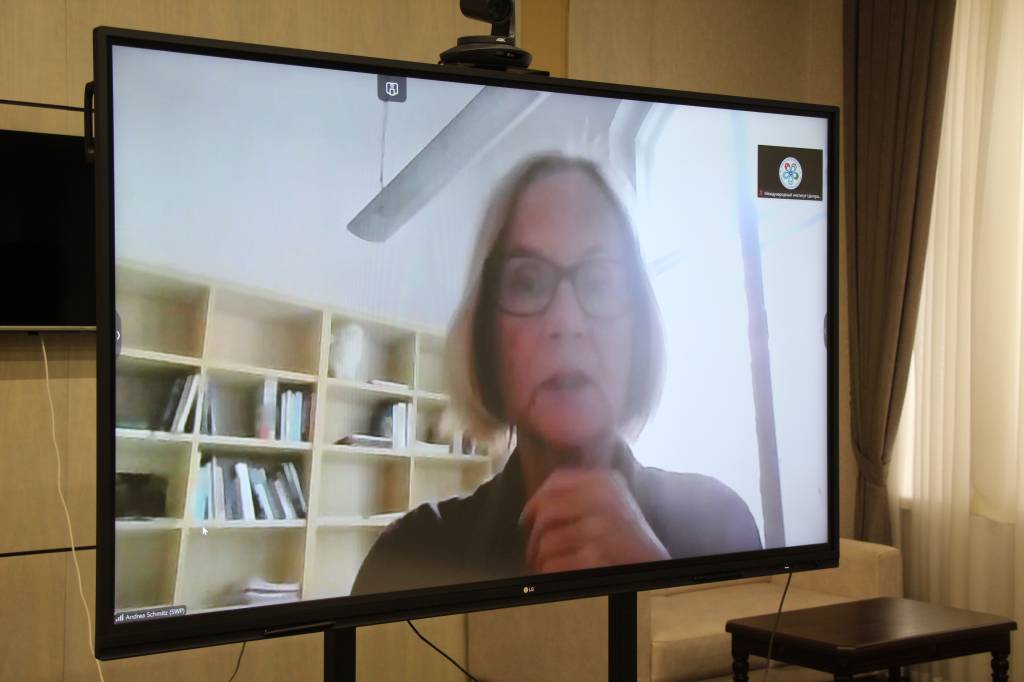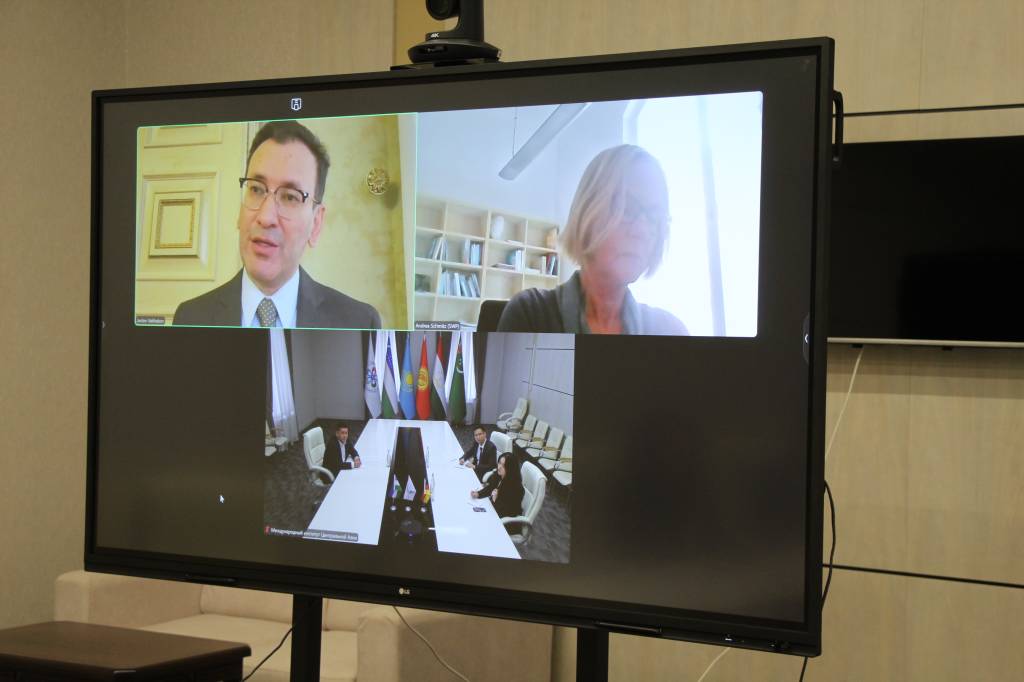
The Director of the International Institute for Central Asia Javlon Vakhabov held an online meeting with Andrea Schmitz, Senior Associate at the German Institute for International and Security Affairs (SWP).
Andrea Schmitz was introduced to the institute’s main research areas during the discussion. Potential areas of cooperation for joint research were discussed, and the role of German think tanks in providing expertise and recommendations for studying Central Asia.

The main focus was on the results of the first high-level summit “Central Asia – Germany” in Berlin last year. This summit established a fundamentally new strategic regional partnership between the parties, marking the first such interaction of Germany with a large region.
Views were also exchanged on a recent article by Dr. Schmitz, co-authored with the Ambassador of Germany to Uzbekistan Manfred Huterer. The article examines the development of a strategic partnership between Germany and Central Asia, with particular attention to the most critical areas of cooperation. It also emphasizes that the parties are committed to combating climate change. The publication notes that the region’s prosperous wind and solar energy resources offer broad opportunities for partnership. Since Germany seeks to import clean energy, Central Asia’s efforts in renewable energy, mainly hydrogen, are particularly promising, the publication’s authors believe.

In turn, the German expert expressed gratitude that IICA pays special attention to historical and cultural heritage research.
G. Khonnazarov, UzA








